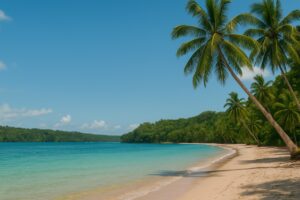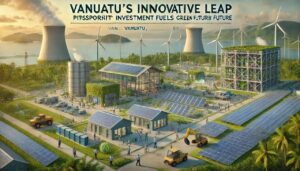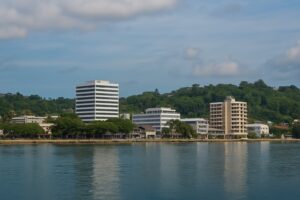Navigating the Future: How Vanuatu’s Solar-Powered Waka Initiative Merges Tradition with Technology
This article explores a pioneering initiative in Vanuatu that ingeniously combines traditional Pacific navigation methods with cutting-edge renewable energy technology. Spearheaded by experts in waka hourua voyaging, this project aims to deliver solar power to remote island communities, demonstrating a remarkable fusion of cultural heritage with sustainable tech solutions. Here, we delve into the project’s execution, its significance in the community, and the broader implications it presents for sustainable development across the Pacific region.
The Role of Waka in Vanuatu
Historically, waka (traditional canoes) have been central to the culture and mobility of Pacific Island communities, epitomizing resilience and identity. In Vanuatu, wakas are not only a link to the past but also a vessel for future sustainability. The innovative use of these canoes in the solar power initiative showcases a practical application of traditional tools in modern contexts.
Hoturoa Barclay-Kerr, a prominent figure in traditional Pacific navigation, leads this transformative project. His expertise in waka hourua voyaging is pivotal in navigating the logistical and cultural intricacies of delivering solar technology to isolated islands. This initiative transcends basic utility, symbolizing a deeper commitment to revitalizing and preserving indigenous practices through sustainable advancements.
The Solar Power Initiative
The project strategically utilizes wakas to transport solar panels and related equipment to islands that traditionally lack robust electrical infrastructure. The geographic spread and isolation of these islands pose significant challenges to conventional power solutions, making solar energy an ideal alternative.
Besides its practical benefits, solar power aligns with the sustainable ethos of the initiative, providing a renewable and maintainable solution at the community level. The initiative includes comprehensive training for local residents, enabling them to install, maintain, and troubleshoot solar systems, which fosters independence and promotes long-term sustainability.
Cultural Significance and Community Engagement
Integrating waka into this solar project not only utilizes traditional transportation methods but also reinforces the cultural significance of these vessels, enhancing community involvement and ownership. This culturally sensitive approach ensures that the initiative resonates more deeply with the community members, encouraging active participation and support.
Engagement is crucial in such developmental endeavors, particularly in culturally rich regions like Vanuatu. The project’s collaborative framework involves local leaders and community members from the outset, ensuring the solutions are bespoke and culturally congruent.
Economic and Environmental Benefits
This initiative offers considerable economic advantages by providing stable electricity, which can significantly enhance local industries such as fishing, agriculture, and crafts. This economic boost is anticipated to elevate living standards and contribute to poverty alleviation.
Environmentally, adopting solar power reduces the dependency on unsustainable fossil fuels, a critical step given Vanuatu’s vulnerability to climate change. This proactive shift not only aids in global climate change mitigation efforts but also secures environmental sustainability for the local ecosystem.
Challenges and Future Prospects
Despite its innovative approach and benefits, the initiative faces logistical hurdles, particularly in transporting heavy solar equipment to remote locations. Continuous maintenance and community support are also vital to ensure the sustainability of the installed systems.
However, the future looks promising. As solar technology advances and becomes more cost-effective, it will likely become more accessible to similar communities globally. Success in Vanuatu could inspire comparable sustainable projects worldwide, positioning this initiative as a scalable model for integrating traditional knowledge with modern technology to address contemporary challenges.
Data: Key Insights
- Cultural Integration: Waka use in the project promotes cultural reverence while modernizing energy solutions.
- Renewable Energy: Solar installations offer sustainable energy alternatives, pivotal for climate change mitigation.
- Economic Benefits: Enhanced access to electricity supports local economies and lifts standards of living.
- Environmental Sustainability: Transitioning to solar reduces carbon footprints and promotes ecological health.
- Community Training: Empowers locals with skills to manage and sustain their energy resources independently.
- Logistical Challenges: Navigating the transportation of equipment to dispersed islands remains complex.










